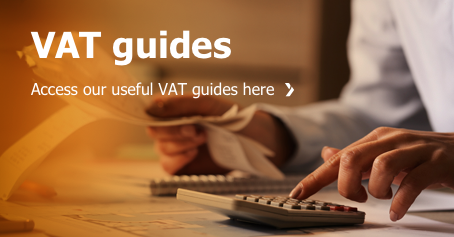Poland VAT Guide

This guide is an overview of Poland’s Value Added Tax (“VAT”) system, focussed on how it affects foreign businesses trading with Poland. It is general in nature and unlikely to cover the specifics of your scenario. It should be read as such and not be construed as advice. For advice as to how your business is affected
by Poland VAT please contact a Kreston Global Poland VAT specialists.

This guide is an overview of Poland’s Value Added Tax (“VAT”) system, focussed on how it affects foreign businesses trading with Poland. It is general in nature and unlikely to cover the specifics of your scenario. It should be read as such and not be construed as advice. For advice as to how your business is affected
by Poland VAT please contact a Kreston Global Poland VAT specialists.
- What is the tax called?
- What is the tax authority?
- What type of tax is it?
- What is it due on?
- What are the VAT rates?
- What does a VAT number look like?
- Is there a registration limit?
- When does a non-established entity need to register?
- When is the place of supply in Poland?
- Any special rules?
- Does a non-established entity need a fiscal representative?
- How often do VAT returns need to be submitted?
- Are penalties imposed for late registration?
- Are penalties imposed in other circumstances?
- Can VAT incurred by overseas businesses be recovered?
- Can VAT be deducted?
- Do I need to issue an invoice?
- Other
What is the tax called?
VAT – podatek od towarów i usług
What is the tax authority?
Krajowa Administracja Skarbowa (KAS)
What type of tax is it?
Consumption based tax on consumers, on business transactions and imports
What is it due on?
Taxable turnover – VAT is added to the value of supplies of goods and services where the ‘place of supply’ is Poland
What are the VAT rates?
Taxable:
23% – default (standard) rate
8% – reduced rate
5% – reduced rate
0% – zero rate
Exempt:
Exemptions for specific services/goods
8% – reduced rate eg
- Food products (eg coffee, tea, spices, confectionary)
- Goods typically used in agriculture
- Health care goods
- Services (eg passenger transport)
5% – reduced rate eg
- Most food
- Children’s car seats
- Books
0% – zero rate eg
- Export
- IC Supply of Goods
- International transport services
- Supply of certain computer hardware to educational establishments
Exempt from VAT eg
- Finance
- Insurance
- Medical care services
- Certain educational services
- Supply of undeveloped land other than construction land
What does a VAT number look like?
PL 1234567890
Is there a registration limit?
For PL established businesses – PLN 200 000 net For non-PL established businesses – NIL
When does a non-established entity need to register?
If it trades goods in Poland or from Poland or if the place of supply is deemed to be in Poland (not in case of B2B to buyers having registered office or fixed establishment in Poland)
When is the place of supply in Poland?
A supply that takes place in Poland.
Also, special rules for services, no matter where the supplier belongs, such as:
- Real estate related
- Digital, telecommunications and broadcasting
- Services, including admissions, linked to physical performance, including artistic, cultural, educational, sporting, entertainment, exhibition and conferences/meetings
- Restaurant and catering
- Hire of means of transport
- Passenger and freight transport
- B2C services on tangible movable property
Any special rules?
If registration application was submitted by a proxy, the proxy is jointly and severally liable with the registered taxpayer up to the amount of PLN 500 000 for the taxpayer’s tax arrears arising from activities performed within 6 months from the date of registration of the taxpayer
Does a non-established entity need a fiscal representative?
Fiscal representation is required in Poland if a company does not have registered office or fixed establishment in EU (does not apply to UK and Norway companies)
How often do VAT returns need to be submitted?
Normally monthly – can be quarterly
Are penalties imposed for late registration?
Yes – up to 5 years – the unpaid tax is due plus interest. Moreover, the failure to register for VAT, is a penal-fiscal offense punishable by a fine or a penalty of restriction of liberty.
The penalty for late registration depends on how the error arose, if is has been brought to the tax office’s attention voluntarily, how late the notification is and the cooperation of the taxpayer in resolving the issue with the tax office. The voluntary late registration may not be penalized at all, and the taxpayer may be entitled to deduct VAT for earlier periods.
Are penalties imposed in other circumstances?
Yes – penalties are charged for:
- VAT return and SAF-T errors (up to 500 PLN for every SAF-T error depending on circumstances) and
- late submission or
- late payment (penalty interest).
The failure to submit a VAT return and failure to pay the tax are treated as failure to disclose the tax base. It is a penal-fiscal offense punishable by a fine or a penalty of restriction of liberty. The penalty depends on circumstances, for ex. if the error has been brought to the tax office’s attention voluntarily or whether it has been corrected in response to a call from the tax office within the time limit set by the tax office.
Can VAT incurred by overseas businesses be recovered?
Where a non-PL established or non-PL VAT registered entity incurs VAT in the PL whilst on business, such as in attending a conference, purchase of fuel, provided there is no registration requirement in the PL and the PL and other country concerned have reciprocal refund arrangements, the Polish tax office will refund the VAT incurred, subject to precise rules and the (annual) time limits for submission of claims.
Can VAT be deducted?
VAT incurred on expenditure can be reclaimed where it is used in connection with ‘taxable’ sales, being at the standard rate of 23%, the reduced rates of 8% or 5% or the zero-rate of 0%.
VAT on expenditure used in connection with exempt supplies cannot usually be reclaimed.
Do I need to issue an invoice?
Invoices must be raised except when supplying private persons. There are specific requirements for what is included on VAT invoices. Invoices may be raised in foreign currency but the VAT amount must be quoted in PLN.
Other
From 2024, all domestic invoices will have to be issued in a structured form in the National eInvoice System (KSeF).
KSeF will cover all enterprises in Poland, i.e. entrepreneurs who are active VAT payers, entrepreneurs exempt from VAT, persons identified in Poland for the special EU OSS procedure, as well as entrepreneurs who have a Polish tax identification number.

